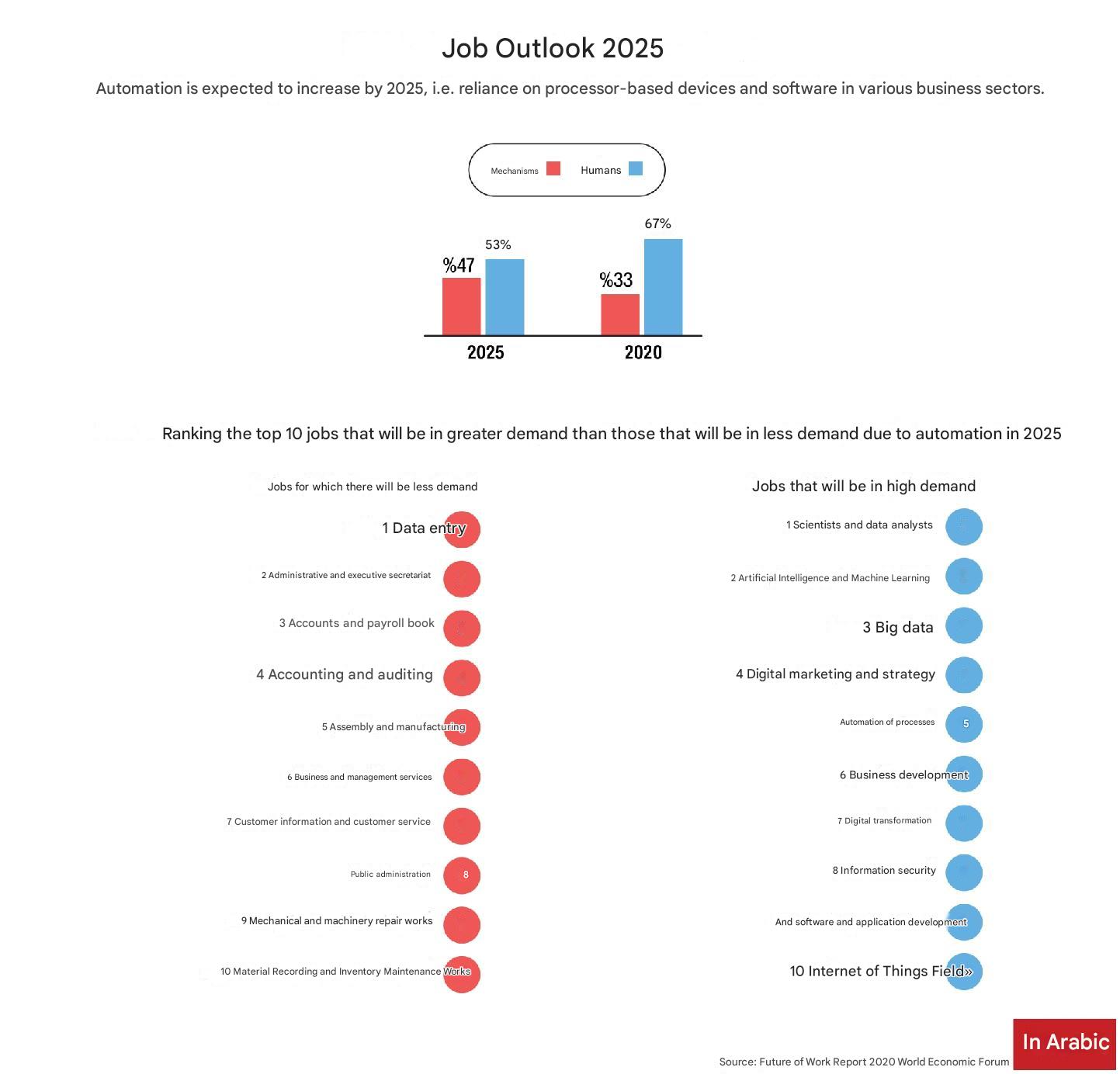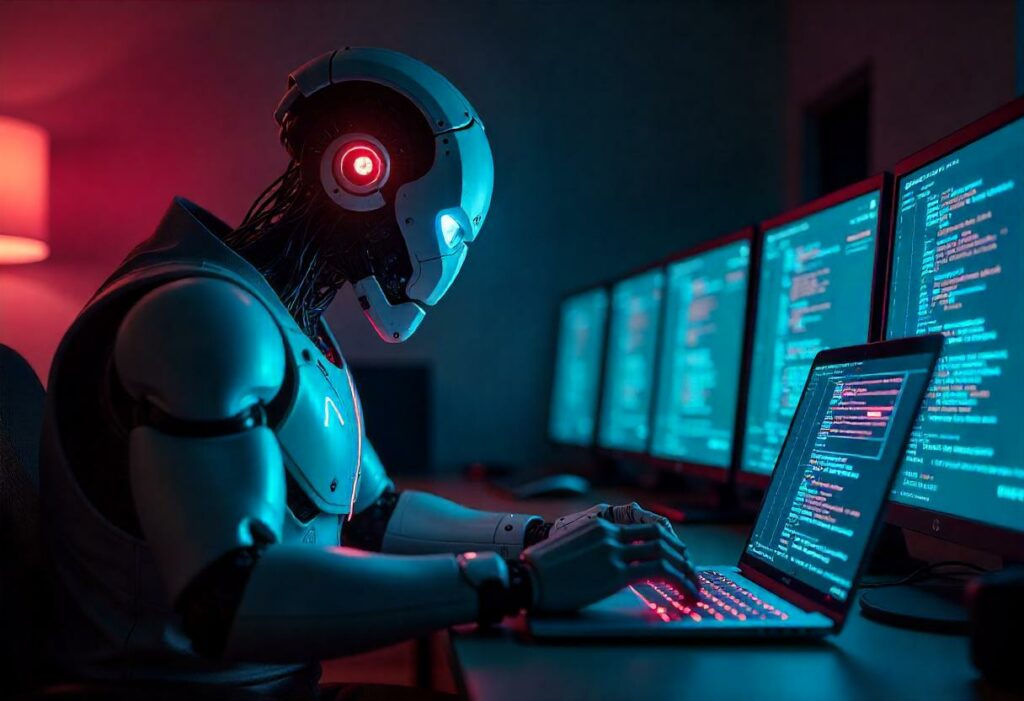Imagine a world where machines handle your daily tasks, giving you more time to be creative and innovative. This isn’t science fiction, it’s the reality taking shape before our eyes thanks to artificial intelligence. But the looming question is: how will this revolution affect the job market? Are we ready for this radical transformation?
Artificial Intelligence: The Tool Reshaping Jobs
Artificial intelligence is infiltrating various fields, from industry and agriculture to services and technology. These technologies do not only automate routine tasks but also learn from data to execute complex processes with accuracy beyond human capability. For example:
- Manufacturing: AI-powered robots can work on production lines with greater precision and speed.
- Services: Chatbots like ChatGPT are efficiently managing customer services.
- Healthcare: Image analysis systems like IBM’s Watson are used for early disease detection.
Threatened Jobs: Tunisia and the World
While artificial intelligence promises a more advanced future, it will undeniably affect many jobs around the world, including in Tunisia.
In Tunisia: Tunisia is one of the countries that has begun adopting modern technologies, but there are some sectors that may experience direct impacts from AI, especially in:
- Administrative and Office Work: Many jobs like data entry, secretarial work, and handling routine queries can be automated through AI chatbots and systems. This may reduce the demand for traditional administrative jobs.
- Industry Sector: As with many countries, AI could replace workers in factories, particularly in routine manufacturing tasks like assembling parts or quality control.
- Financial Sector: With the development of AI technologies, some Tunisian financial institutions have started using AI systems to conduct financial analysis, potentially putting traditional jobs in accounting and financial oversight at risk.
Globally: According to the World Economic Forum, 85 million jobs could disappear by 2025 due to automation and AI. However, in the same period, around 97 million new jobs requiring new skills will emerge, including:
- AI Programming and Data Analysis: The demand for AI professionals, data scientists, and developers is rapidly increasing.
- Consulting and Technical Guidance: New roles in AI training and digital transformation have already started emerging.

Will AI Replace Humans?
The answer is not a simple yes or no. AI will not fully replace humans, but it will redefine their roles. Manual tasks will become less important, while demand for creative, critical thinking, and problem-solving skills will grow.
According to a McKinsey report:
- 70% of major companies around the world have already begun implementing AI in their daily operations.
- 40% of employees are concerned about their future career prospects due to automation.
Preparing for the Future: How Can We Protect Our Jobs?
- Learn Technical Skills: Learn programming, data analysis, and understand how AI systems work.
- Focus on Soft Skills: Creativity, leadership, and teamwork.
- Continuous Development: Invest in yourself through training courses and specialized certifications.
The Positive Side of Artificial Intelligence
Beyond the concerns, AI offers tremendous opportunities to enhance productivity, improve quality of life, and free up time to focus on innovation. For example:
- Reducing Work Hours: By automating repetitive tasks.
- Improving Salaries: For jobs that require high technical skills.
- Creating New Jobs: Roles that didn’t exist just a few years ago.
In Conclusion: Are We Ready?
AI is not the enemy, but a powerful tool that can contribute to building a bright future if used wisely. As individuals and communities, we need to embrace change, prepare for it, and adapt ourselves to the demands of the new world.




